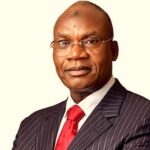The rate at which educational certificates and other academic records are being forged by students, applicants and workers in Nigeria is frightening. Statistics that emerged from recent screening exercises in Niger and Plateau states are high, so huge that one is prompted to believe there are probably more forged certificates in circulation than genuine ones. The scourge is common among admission and job seekers, prospective corps members, desperate politicians and political office chasers.
- Insecurity: Don’t Leave Calabar, Ayade Begs WAEC
- U.S Election: I Won But I’ll Go To Supreme Court – Trump
It was shocking to hear from the committee that screened civil servants in Niger State that 80 percent of staff of the State Ministry of Education was discovered to be in service for several years with forged certificates. This was made known by Chairman of the Committee and the State’s Commissioner of Works, Honourable Ibrahim Panti, at a press conference in Minna. He said 3,057 civil servants on the state’s payroll were involved in scandals ranging from the falsification of credentials to outright forgery of certificates.
The alleged principal actor behind the printing of fake certificates of the State College of Education, Minna, in addition to five staff members of the institution were all arrested by the Niger State police command. Panti said the suspected printer had admitted during interrogation that he had printed and sold out unspecified number of fake certificates to many students, which they have used and were still using to secure employment within and outside the state. He revealed that most of those uncovered to be having the fake certificates could neither write their names correctly nor communicate in simple English language when they appeared for screening. The Niger state government had in September this year set up a salary management committee to screen all categories of civil servants in order to ascertain staff strength of the state civil service.
In a similar development, the Plateau State Universal Basic Education Board (SUBEB) recently sacked 122 primary school teachers who were discovered to have gained employment in the state with fake certificates. Prof. Mathew Sule, chairman of the board, revealed this at a recent press briefing in Jos. He said the development followed the intense screening exercise conducted by the board for all teachers on its payroll. Sule clarified that the decision to sack the teachers was in consonance with the public service rules of the state and the guidelines of the Teachers Registration Council of Nigeria (TRCN). He explained further that, “Of the over 15,000 teachers in the 2,537 public primary schools in Plateau state, we discovered that 122 presented fake certificates to us. We followed due process, including visiting the schools they claimed they have graduated from and found out they did not actually attend those schools. As a board that is poised towards quality teaching and learning at the basic educational level, we decided to dismiss them”.
Sule said while some of the affected teachers claimed ignorance of their alleged criminal acts, others owned up. According to him, Governor Simon Lalong had in 2017 graciously granted pardon to over 2,000 teachers who had similar challenges, but were made to provide authentic certificates. He explained that the educational system would not have the desired quality if unqualified teachers were allowed to remain in it. He reiterated saying “We cannot get the desired quality in teaching and learning if we don’t have trained and quality teachers. The quality of a learner is a replicate of the quality of the teacher”.
In November 2019, the National Youth Service Corps (NYSC) revealed that up to 82.9 percent of graduates from foreign universities refused to present themselves to defend their certificates uploaded on its online portal. NYSC Director-General, Brigadier-General Shuaibu Ibrahim declared last year when he visited former Head of State and founder of the scheme, General Yakubu Gowon in Abuja that only 3,420 foreign graduates out of the 20,000 who uploaded their certificates came for the physical verification exercise. The rest absconded probably to evade arrest.
The incidences of false academic credentials have become prolific in Nigeria. Since too much emphasis is placed on paper qualification rather than the ability, capacity or aptitude displayed by an individual, university degree has become one of the most sought-after needs in modern Nigeria; giving rise to an alarming trend of certificate forgery. Desperation is another underlying factor in the rising cases of forged credentials in the country. Governors, ministers, federal and state lawmakers, public office holders, civil servants, and even lecturers have been found culpable of this menace. If the certificates of all federal and other states’ workers were to be screened today, a large number would be laid off for using fake results to secure employment. A director was once caught in the federal ministry of health with a fake MBBS certificate. Low productivity and having square pegs in round holes are some costly prices the country is paying for certificate forgery.
Our analogue system in which documentation of academic records is predominantly paper-based encourages certificate forgery. Besides high administrative cost, paper-based databank makes the process of verification cumbersome, unreliable, and time-consuming. Modern information and communication technology provides reliable and cost-effective means of checking this criminal tendency in people. For instance, universities and other educational institutions can provide certificate validation services on their respective websites. The online availability of the Senior Secondary School Certificate Examination (SSCE) results has, in the past two decades, drastically reduced attempts at faking results at that level.
Indeed, technology has the answer. If government had shown enough political will and commitment to National Identification Management Commission (NIMC)’s National Identification Number (NIN) project, many criminal activities including certificate forgery and falsification would have been curbed in Nigeria. For example, NIN could be tied to all personal details of every individual including examination results, bank accounts, residential address, employment record, hospital card, driver’s license, etc. The biometric details usually captured at the point of enrolment can go a long way to check certificate or document forgery if an individual’s NIN is linked to his personal details.
Thus, NIN would be checking forgery in the same way Bank Verification Number (BVN) is checking fraudulent activities in the country’s financial sector. Professor Jega’s Card Reader has also been effectively used to check electoral malpractices. One really wonders why government is not committed to the NIN project. May Allah (SWT) guide leaders in positions of authority at all levels to explore and deploy modern technology in the fight against certificate forgery and falsification, amin.

 Join Daily Trust WhatsApp Community For Quick Access To News and Happenings Around You.
Join Daily Trust WhatsApp Community For Quick Access To News and Happenings Around You.


